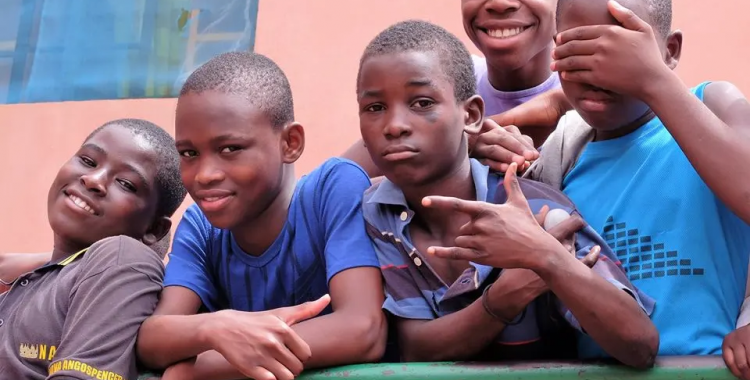Augusto Samuel Francisco, Salesian of Dom Bosco, was speaking on the sidelines of the 7th Forum for Listening to Homeless Children, under the theme "The Role of Authorities and their Partners in Mitigating the Phenomenon of Homeless Children in the Light of the 11 Commitments".
According to the priest, the reception centers have combined synergies and are working to create a database to monitor children on the street, whose number has been increasing in recent years.
"Every day it increases and this requires the rethinking of new strategies, which can respond to or stop the true source of the presence of children on the streets – extreme poverty and family disruption", he said, stressing that, in Luanda, the main focuses are at Largo 1.º de Maio, airport, Chicala, Viana, Cacuaco and Ilha de Luanda.
The official stressed that combating these two causes will greatly reduce the phenomenon.
Dom Bosco Homes, which have been in existence for 25 years, house 124 children, aged eight to 14, spread across four centres, in addition to 156 families who benefit from support for children already reintegrated into their homes.
Among the difficulties they face, Augusto Samuel Francisco highlighted the financial ones first, lamenting that, if the current situation continues, they could close their doors by 2026.
To keep the homes operating, the management is "knocking on doors", presenting its work, "even trying to find financing outside the country".
"Years ago it was much more malleable, much easier, as we move forward, the image we have of the country, the source of financing has diminished, [the image] of a country that has resources and can provide a response efficiently to the problems we have", he highlighted.
According to the general director of Dom Bosco Homes, previously, the needs were presented "and many people showed solidarity", but, today, they find the response that "Angola is not a priority, it can respond", a situation that has worsened especially after the covid-19 pandemic.
Ensuring the ongoing training of children and decent remuneration for its 67 educators is another challenge.
On the streets, children are in a vulnerable situation, many turning to drug use, victims of physical and psychological abuse, he continued, lamenting the lack of systematic support from authorities for centers that work with homeless children.
The priest highlighted that the country has policies and strategies aimed at these issues, but the challenges lie in their applicability, giving as an example that the institution has been trying, for three years, to obtain a license to build a new home in Luanda.
In turn, the coordinator of the Dom Bosco Homes network, Teca Lumbe, said that, in addition to extreme poverty and violence against children, homes also encounter cases of children who are accused of being witches.
Teca Lumbe highlighted that, in addition to families, these accusations also come from some churches.
"We have children [who] ran away from churches because they were chained, because they had spells on them, but these children are with us and we have never seen anything bad in them", he said.
The meeting was attended by representatives from 30 of the 32 shelter homes in the province of Luanda, in addition to the presence of the Ombudsman, Florbela Araújo, and government institutions that deal with homeless children.







